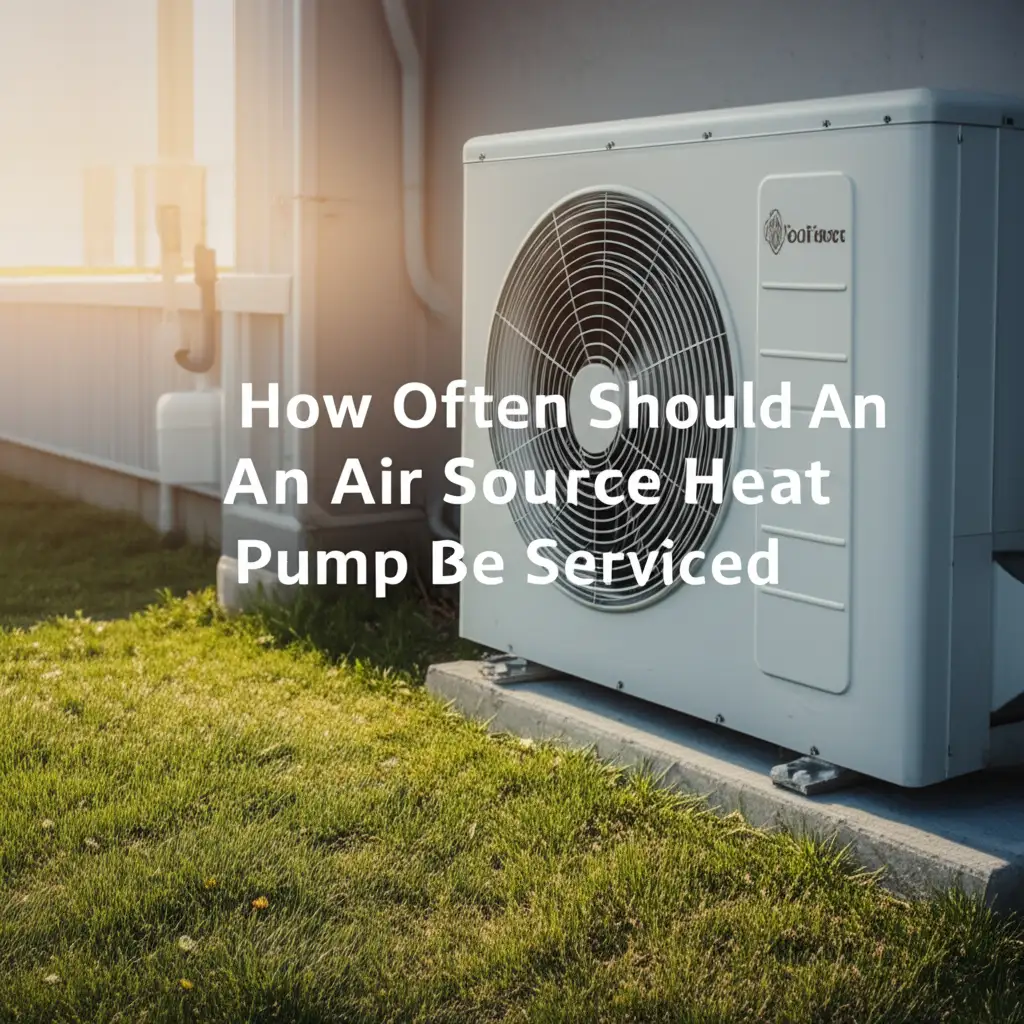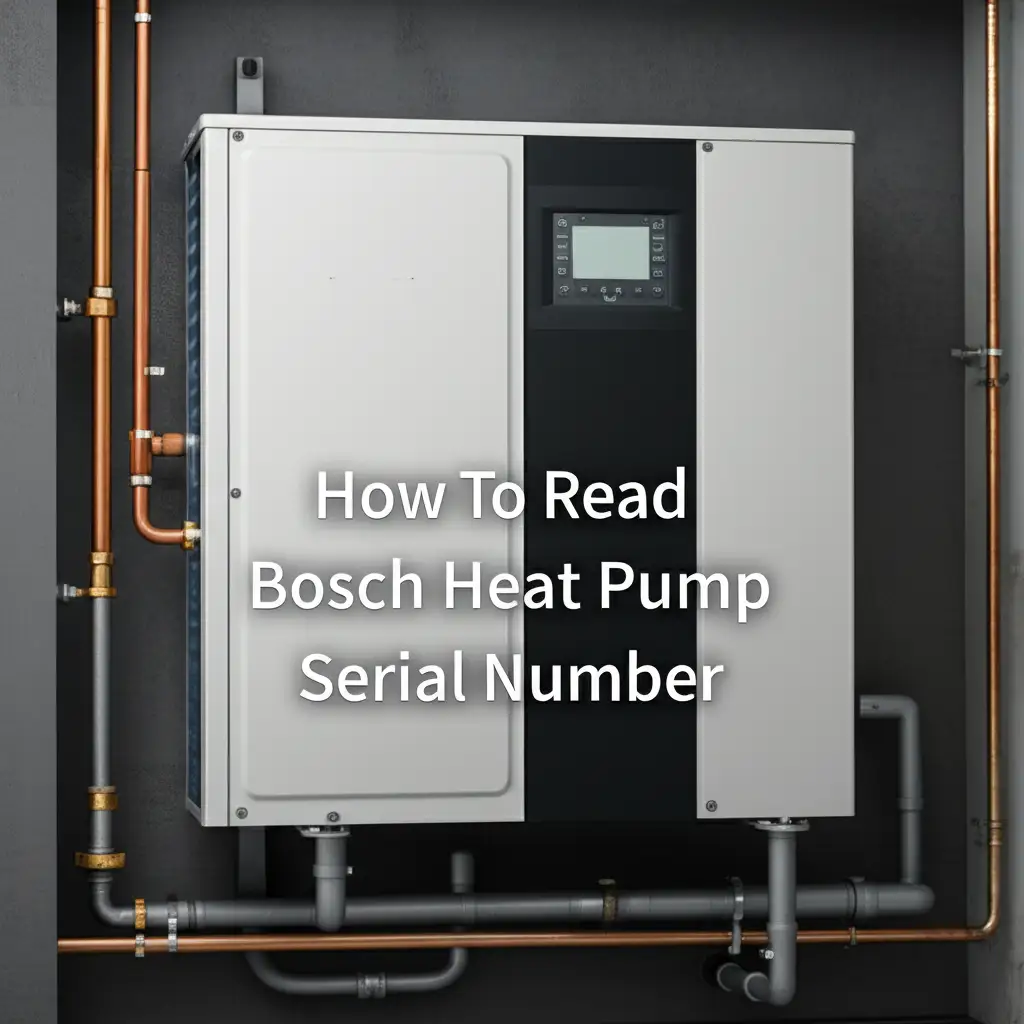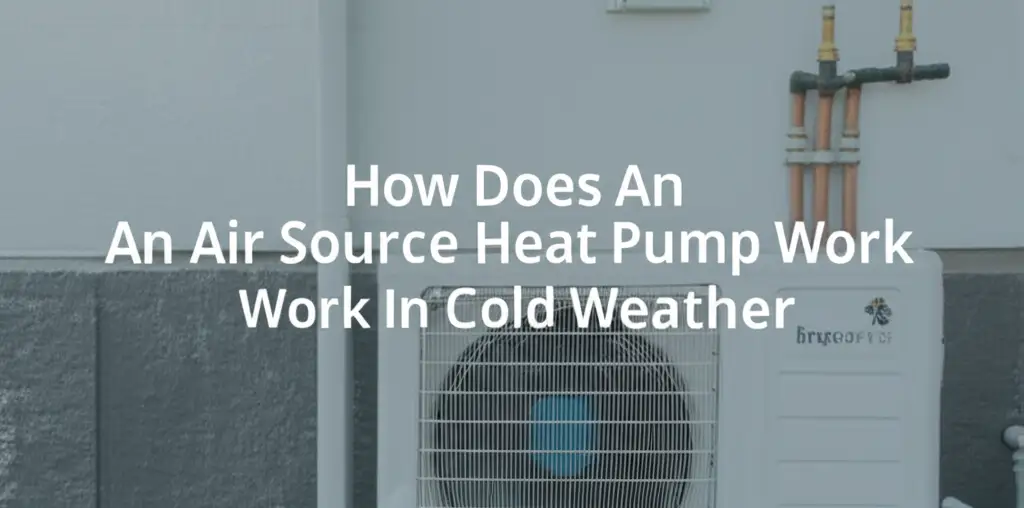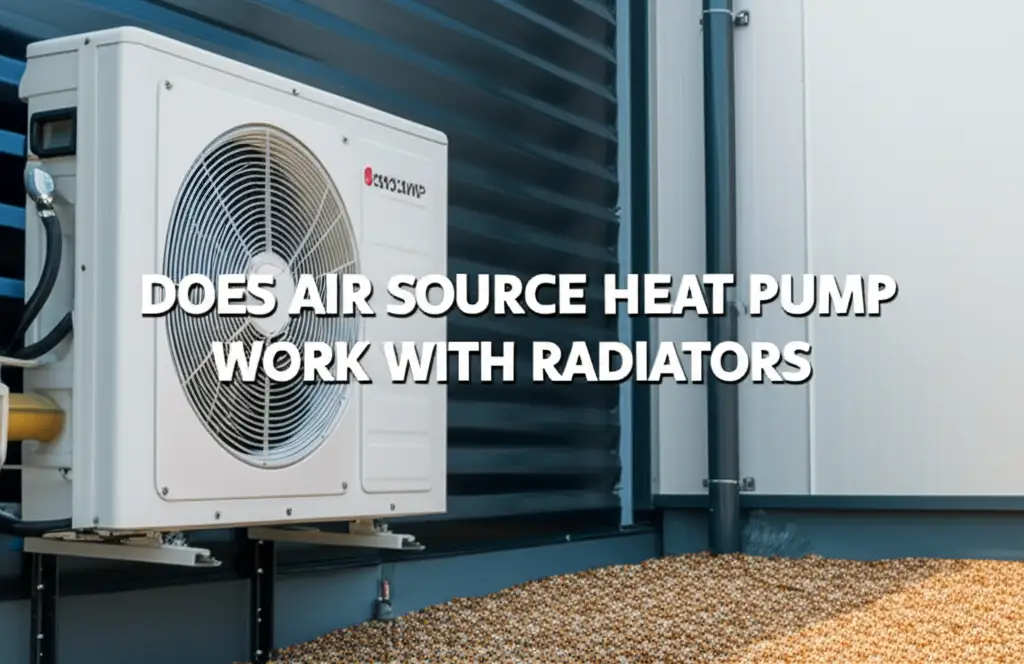· Katria Melrose · Heat Pumps · 20 min read
Why Is My Mitsubishi Heat Pump Blowing Cold Air
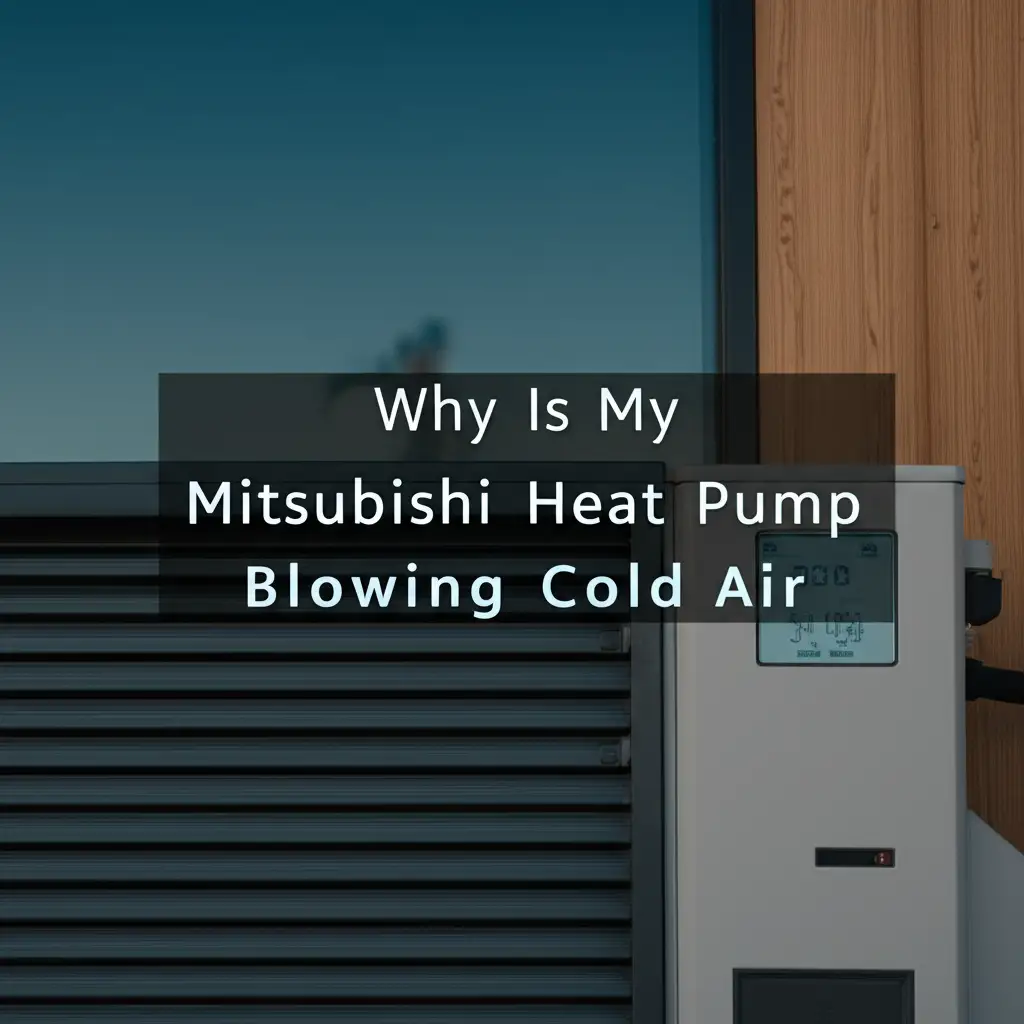
Why Is My Mitsubishi Heat Pump Blowing Cold Air?
Imagine a chilly evening. You walk into your home, ready for warmth, and turn on your Mitsubishi heat pump. Instead of a comforting rush of warm air, you feel a distinct draft of cold air. This can be truly frustrating. I understand that feeling of disappointment when your heating system does not work as it should. A Mitsubishi heat pump blowing cold air can signal several issues, ranging from simple thermostat adjustments to more complex mechanical problems. My goal is to help you understand why this happens. We will explore common reasons your heat pump might be blowing cold air. We will also provide clear steps you can take to identify and fix the problem. This guide helps you restore warmth to your home.
Takeaway
If your Mitsubishi heat pump blows cold air, check these common issues first:
- Thermostat Settings: Ensure it is in heating mode and the temperature is set correctly.
- Air Filters: A clogged filter restricts airflow, impacting heating efficiency.
- Defrost Cycle: Cold air during a defrost cycle is normal. Wait for it to finish.
- Refrigerant Levels: Low refrigerant indicates a leak, requiring professional repair.
- Outdoor Unit: A frozen outdoor unit or blocked airflow can cause problems.
- Reversing Valve: This part directs refrigerant flow. A faulty valve sends cold air instead of heat.
- Professional Help: For complex issues like refrigerant leaks or mechanical failures, contact an HVAC technician.
The Immediate Answer: Why Your Mitsubishi Heat Pump is Blowing Cold Air
Your Mitsubishi heat pump is blowing cold air because of incorrect thermostat settings, a dirty air filter, or the unit is in a normal defrost cycle. More serious causes include low refrigerant due to a leak, a malfunctioning reversing valve, or problems with the outdoor unit. Checking basic settings and components often resolves the issue.
Understanding Your Mitsubishi Heat Pump’s Heating Process
A heat pump moves heat. It does not generate heat like a furnace. In winter, your Mitsubishi heat pump extracts heat from outdoor air. Even cold air has heat energy. The heat pump then transfers this heat indoors. It uses refrigerant to do this. The refrigerant absorbs heat outdoors, then releases it indoors. This process makes your home warm. When a heat pump blows cold air, it means this heat transfer is not happening. It might be due to a problem with the refrigerant cycle. It could also be due to issues with components that move air or control the system. My experience shows many people wonder how heat pumps work in cold weather. They are designed to extract heat even at low temperatures.
Mitsubishi heat pumps are known for their efficiency. They use advanced technology. This technology allows them to maintain comfort in various climates. When working correctly, they provide consistent warmth. If your Mitsubishi unit is blowing cold air, something interrupts this normal operation. We need to find out what that interruption is. It is important to know the difference between a normal defrost cycle and a real problem. Sometimes, the unit needs to melt ice from its outdoor coils. During this time, it might blow cool air indoors. This is temporary and part of its normal function.
Mitsubishi systems often include features like Hyper-Heating. This allows them to perform well in very cold climates. They use special compressors and refrigerant systems. These features help them extract more heat from the outside air. However, even these advanced systems can have issues. A common misconception is that a heat pump simply makes heat. It actually moves existing heat. When it blows cold air, it is usually failing to move heat effectively from outside to inside. We need to investigate why this heat transfer is not happening.
Initial Checks: Thermostat Settings and Power Issues
My first step in troubleshooting any heat pump problem is always to check the thermostat. This small device controls your entire system. Many times, the issue is simply an incorrect setting. First, ensure your thermostat is set to “Heat” mode. It is easy to accidentally leave it on “Cool” or “Fan Only” mode. If it is on “Cool,” your heat pump will indeed blow cold air. Next, check the temperature setting. Make sure the set temperature is higher than the current room temperature. If your home is 68°F and the thermostat is set to 65°F, the unit will not turn on to heat.
You should also check the thermostat’s battery. Some thermostats run on batteries. When batteries are low, the thermostat might not communicate properly with the heat pump. Replace the batteries if needed. This is a simple fix. After adjusting settings or replacing batteries, give the system a few minutes. It needs time to respond to the new commands. Sometimes, a reset helps. You can often reset a thermostat by turning it off, waiting a minute, and turning it back on.
Power supply problems can also cause cold air. Check your circuit breaker panel. Locate the breaker labeled for your heat pump or HVAC system. It might be tripped. A tripped breaker means the system is not getting power. Flip the breaker completely off, then firmly back to the “On” position. If the breaker trips again immediately, do not try to reset it repeatedly. This indicates a more serious electrical issue. In such cases, it is best to contact an electrician or an HVAC professional. Power interruptions prevent the heat pump from working correctly. This could explain why your Mitsubishi heat pump is blowing cold air.
Also, check the outdoor unit. Make sure its disconnect switch is on. This switch is usually near the outdoor unit. It looks like a light switch in a small box. Sometimes, it gets accidentally turned off. Without power to the outdoor unit, the heat pump cannot extract heat. It will then only circulate indoor air, which will feel cold.
Airflow Problems: Dirty Filters and Blocked Vents
Restricted airflow can severely impact your Mitsubishi heat pump’s ability to heat. When airflow is blocked, the heat pump struggles to exchange heat. This causes it to blow cold air. The most common culprit is a dirty air filter. Air filters trap dust, dirt, and debris. They protect your heat pump’s internal components. However, a clogged filter restricts the air moving through your system. This reduces heating efficiency. It can even cause the coils to freeze, leading to more problems. I always recommend checking your air filter first.
Locate your air filter. It is usually in the indoor air handler or return air duct. Pull it out and inspect it. If it looks gray and clogs, it needs replacement. Most manufacturers recommend changing filters every 1 to 3 months. This depends on usage and household conditions. Homes with pets or allergies may need more frequent changes. Replacing a dirty filter with a clean one significantly improves airflow. This often resolves the problem of a heat pump blowing cold air.
Beyond filters, blocked supply and return vents can also cause airflow issues. Walk through your home and check all the supply vents. These are where warm air should come out. Ensure they are open and not blocked by furniture, curtains, or rugs. Similarly, check your return air vents. These are larger and draw air back into the system. They should also be clear of obstructions. Blocked vents mean the heat pump cannot properly circulate air. This affects its ability to distribute heat effectively.
You might also consider checking your ductwork. Leaks or disconnections in the ducts can cause air loss. This reduces the amount of warm air reaching your rooms. While checking ducts might require a professional, a quick visual inspection for obvious damage is a good idea. Poor airflow leads to inefficient operation. This makes your Mitsubishi heat pump work harder for less warmth. It can result in cold spots or no heat at all. Ensuring clear airflow is a fundamental part of heat pump maintenance. If you are experiencing similar issues with a different brand, such as a Lennox system, you might find similar troubleshooting steps helpful, like those discussed in “Why Is My Lennox Heat Pump Blowing Cold Air.”
Refrigerant Issues: Leaks and Low Levels
Refrigerant is crucial for your heat pump’s operation. It absorbs and releases heat as it cycles through the system. If your Mitsubishi heat pump is blowing cold air, a refrigerant issue might be the cause. Low refrigerant levels are a common problem. Refrigerant does not get “used up” like fuel. If levels are low, it almost always indicates a leak in the system. A leak allows refrigerant to escape. This reduces the heat pump’s ability to transfer heat. This means it cannot absorb enough heat from outside to warm your home.
When refrigerant levels drop, the heat pump struggles. You might notice the outdoor unit running constantly but providing little to no heat. You might also hear a hissing or bubbling noise. This sound can indicate a refrigerant leak. Sometimes, ice may form on the outdoor unit’s coils even when it is not in a defrost cycle. This is a strong sign of low refrigerant. It shows the system cannot absorb heat correctly.
Addressing a refrigerant leak is not a DIY task. Refrigerant is a hazardous chemical. It requires specific tools and training to handle safely. Moreover, simply adding more refrigerant without fixing the leak is a temporary solution. The new refrigerant will just leak out again. A certified HVAC technician must find the leak, repair it, and then properly recharge the system. This ensures the heat pump operates efficiently and safely. Ignoring a refrigerant leak can lead to compressor failure. This is a very expensive repair.
Refrigerant problems directly impact the heat pump’s core function. Without enough refrigerant, the system cannot perform its heat transfer duties. It then blows cold air because it is essentially running as an air conditioner in heating mode. This is why a professional diagnosis is essential for any suspected refrigerant issue. For more general insights into heat pump behavior, especially how they interact with cold temperatures, you might want to read “Why Does Heat Pump Blow Cold Air in Winter” to understand the nuances of their operation in cooler climates.
The Defrost Cycle and Outdoor Unit Problems
It is common for heat pumps to blow cold air during their defrost cycle. This is a normal part of operation, especially in colder weather. When your Mitsubishi heat pump extracts heat from cold outdoor air, moisture in the air can condense and freeze on the outdoor coil. Ice buildup reduces the unit’s efficiency. To remove this ice, the heat pump enters a defrost cycle. During this cycle, the system temporarily reverses its refrigerant flow. It sends warm refrigerant to the outdoor coil to melt the ice. To prevent cold air from blowing indoors, the indoor fan often shuts off or runs at a very low speed.
However, some cold air might still enter your home during defrost. This is usually brief, lasting about 5-15 minutes. After the defrost cycle finishes, the heat pump should return to normal heating operation. If your heat pump constantly enters defrost mode or stays in it for too long, this might indicate an issue. Excessive ice buildup could be due to low refrigerant or a faulty defrost sensor. It could also mean a problem with the outdoor fan.
Problems with the outdoor unit itself can also cause cold air. The outdoor unit needs proper airflow. Ensure that nothing blocks it. Snow, ice, leaves, or debris can block the outdoor unit’s coils or fan. This prevents it from absorbing heat effectively. Clear away any obstructions around the unit. Also, check if the outdoor fan is spinning freely. A malfunctioning outdoor fan means heat cannot be properly exchanged. This leads to reduced heating performance.
Another common issue is a frozen outdoor unit when it’s not in defrost. If the outdoor coil is completely covered in ice, your system cannot absorb heat. This might be due to low refrigerant, a faulty defrost board, or a fan motor issue. A completely frozen outdoor unit needs professional attention. It prevents your Mitsubishi heat pump from functioning as a heater. It will only circulate cold air indoors. Understanding the normal defrost cycle versus a persistent outdoor unit problem helps you decide when to call for help.
Reversing Valve Malfunction: Heating vs. Cooling Mode Issues
The reversing valve is a critical component in your Mitsubishi heat pump. It allows the heat pump to switch between heating and cooling modes. In heating mode, the valve directs refrigerant to absorb heat from outdoors and release it indoors. In cooling mode, it reverses the flow. It absorbs heat from indoors and releases it outdoors. If this valve malfunctions, it can get stuck. It might get stuck in the cooling position or a neutral position. This means your heat pump will blow cold air, even when you set it to heat.
A faulty reversing valve can manifest in different ways. Sometimes, the valve sticks completely. Your heat pump will then only produce cold air, regardless of the thermostat setting. Other times, the valve might partially stick. This leads to inefficient heating or inconsistent temperatures. You might notice that your unit starts to heat, then suddenly switches to blowing cold air. A common sign of a failing reversing valve is a loud click or whooshing sound from the outdoor unit when it tries to switch modes, but then nothing happens, or it blows cold air.
Diagnosing a reversing valve issue requires a professional. The valve is complex and part of the sealed refrigerant system. It also involves electrical connections. An HVAC technician can test the valve’s operation. They can determine if it needs repair or replacement. This is not a DIY repair. Attempting to fix it yourself can cause further damage. It can also be dangerous due to the refrigerant.
If your heat pump constantly blows cold air despite other checks, the reversing valve is a strong suspect. This problem specifically makes your heat pump act like an air conditioner when it should be heating. It directly affects the system’s ability to switch between its two primary functions. This specific issue ensures your Mitsubishi heat pump only blows cold air, indicating a core operational failure. If you have similar problems with a Daikin unit, you might find relevant information in “Why Is My Daikin Heat Pump Blowing Cold Air.”
Compressor and Fan Motor Problems
The compressor is the heart of your Mitsubishi heat pump. It circulates refrigerant through the system. It also increases the pressure and temperature of the refrigerant. This prepares it to absorb or release heat. If the compressor fails, your heat pump cannot perform its primary function. It will not be able to move heat into your home. This results in cold air blowing from the vents. Signs of a failing compressor include strange noises like grinding or screeching from the outdoor unit. The unit might also struggle to start or trip the circuit breaker.
A compressor problem often means a major repair. Sometimes, the compressor can be replaced. Other times, the entire outdoor unit might need replacement. This is a costly repair. Regular maintenance can help prevent compressor failure. However, they do wear out over time. When the compressor stops working, the system cannot process the refrigerant. This directly means no heat transfer, and only cold air moves through your vents.
Fan motors are also crucial. Your heat pump has two main fans:
- Indoor Fan (Blower Motor): This fan circulates air over the indoor coil. It then pushes the conditioned air through your home’s ducts. If this fan malfunctions, airflow can be insufficient. This leads to poor heat distribution or no air movement at all. You might hear strange noises or notice weak airflow from the vents.
- Outdoor Fan Motor: This fan helps move air across the outdoor coil. This is where heat is absorbed in heating mode and released in cooling mode. If the outdoor fan fails, the unit cannot efficiently exchange heat with the outside air. This leads to poor heating performance or a frozen outdoor coil.
Both fan motors can cause your heat pump to blow cold air. Without proper airflow from either fan, the heat pump’s ability to transfer heat is severely compromised. A professional can diagnose fan motor issues. They can determine if a repair or replacement is needed. These components are vital for heat pump operation. Their failure directly impacts your Mitsubishi heat pump’s heating capability. Regular inspections can identify early signs of wear in these motors.
Electrical and Sensor Malfunctions
Modern Mitsubishi heat pumps rely heavily on electrical components and sensors. These parts monitor the system’s operation and ensure it functions correctly. When any of these components malfunction, your heat pump can start blowing cold air.
Capacitors: These components store electrical energy. They provide a boost to start motors, like the compressor and fan motors. If a capacitor fails, the associated motor may not start or run properly. You might hear a humming sound from the outdoor unit, but the fan or compressor does not engage. A failing capacitor prevents the heat pump from starting its heating cycle.
Sensors: Heat pumps have various sensors. These include temperature sensors, pressure sensors, and defrost sensors.
- Temperature Sensors: These tell the control board the exact temperature of the coils and air. If a temperature sensor is faulty, the heat pump’s control board might receive incorrect readings. This can cause the unit to operate in the wrong mode or incorrectly initiate a defrost cycle. This can lead to blowing cold air.
- Defrost Sensors: These specifically monitor the temperature of the outdoor coil. They signal the unit to start a defrost cycle when ice builds up. If this sensor fails, the unit might not defrost. This results in excessive ice buildup on the outdoor coil. A heavily iced coil cannot absorb heat, causing the system to blow cold air.
- Pressure Sensors: These monitor refrigerant pressure. Incorrect readings can cause the unit to shut down or operate inefficiently.
Control Board: The main control board acts as the “brain” of your heat pump. It receives signals from the thermostat and sensors. It then sends commands to other components. A faulty control board can send incorrect commands. This could make the unit run in cooling mode instead of heating. It could also prevent key components from engaging. This is a complex component. Diagnosing and replacing a control board always requires a skilled technician.
Troubleshooting electrical and sensor issues requires specialized tools and knowledge. Attempting these repairs without proper training is dangerous. It can also cause more damage to your system. If you have checked simpler issues and your Mitsubishi heat pump still blows cold air, these internal electrical problems are a likely cause. A professional can use diagnostic equipment to pinpoint the exact faulty component.
When to Call a Professional HVAC Technician
While some heat pump issues have simple fixes, many require professional expertise. Knowing when to call an HVAC technician saves you time, money, and potential damage to your system. I recommend contacting a professional if:
- You suspect a refrigerant leak. Handling refrigerant requires special tools and licensing. It is also hazardous. A technician can find the leak, repair it, and safely recharge your system.
- The outdoor unit is frozen solid. While a brief defrost cycle is normal, a unit covered in ice for extended periods indicates a problem. This might be a defrost sensor issue, a fan problem, or even low refrigerant.
- You hear unusual noises. Grinding, screeching, loud banging, or persistent humming sounds often point to mechanical failures. These include problems with the compressor, fan motors, or other internal components.
- You have electrical issues. If a circuit breaker keeps tripping or you suspect a faulty capacitor or control board, call a professional. Working with electricity is dangerous. HVAC technicians have the training to safely diagnose and repair electrical problems.
- The problem persists after basic troubleshooting. If you have checked the thermostat, filters, and outdoor unit for obstructions, but your Mitsubishi heat pump still blows cold air, the issue is likely more complex.
- You lack the tools or knowledge. Many heat pump repairs require specialized tools and an understanding of HVAC systems. Do not attempt repairs if you are unsure. This could void your warranty or cause more expensive damage.
A professional technician can quickly diagnose complex problems. They have diagnostic equipment. They also have access to genuine Mitsubishi parts. They ensure repairs are done correctly and safely. Investing in professional service protects your heat pump and restores your home’s comfort. For example, understanding how often an air source heat pump should be serviced can prevent many issues that lead to blowing cold air. Getting regular service helps catch problems early. If you want to know more about general heat pump maintenance, “How To Clean Heat Pump Coils” is a good resource for simple upkeep tasks.
Frequently Asked Questions (FAQs)
Q1: Why does my Mitsubishi heat pump blow cold air when it’s very cold outside?
A1: Your Mitsubishi heat pump might blow colder air in very low temperatures because it struggles to extract enough heat from the outside air. Below a certain temperature, usually 20-30°F (-6 to -1°C), supplemental heat (like auxiliary electric coils) might engage. Without it, the output air might feel cooler than expected, even if heating is active. This is common for heat pumps working at their lower operational limits.
Q2: Is it normal for a heat pump to blow cold air sometimes during winter?
A2: Yes, it is normal for a heat pump to blow cool air periodically during its defrost cycle. This cycle melts ice from the outdoor coil. The duration is usually short, around 5-15 minutes. If it blows cold air for longer periods or frequently, it could indicate a problem with the defrost system or other components.
Q3: How often should I change my Mitsubishi heat pump’s air filter?
A3: You should change your Mitsubishi heat pump’s air filter every 1 to 3 months. This depends on factors like pet ownership, allergies, and overall usage. A dirty filter restricts airflow, reduces efficiency, and can cause your unit to blow cold air. Regular filter changes ensure optimal performance and air quality.
Q4: What are the signs of a refrigerant leak in my heat pump?
A4: Signs of a refrigerant leak include your Mitsubishi heat pump blowing cold air, reduced heating performance, hissing or bubbling noises, and ice buildup on the outdoor coil. Low refrigerant causes the system to run inefficiently. If you suspect a leak, contact an HVAC professional immediately. Refrigerant leaks require expert repair and recharging.
Q5: Can a faulty thermostat cause my Mitsubishi heat pump to blow cold air?
A5: Yes, a faulty thermostat is a common reason for your Mitsubishi heat pump blowing cold air. Incorrect settings, such as being in “Cool” or “Fan Only” mode, will prevent heating. Low batteries or a malfunctioning thermostat can also send wrong signals to the heat pump. Always check your thermostat settings and battery first.
Q6: Why is my outdoor Mitsubishi unit covered in ice and blowing cold air indoors?
A6: An outdoor Mitsubishi unit covered in ice, combined with cold air indoors, suggests a problem with its defrost cycle or low refrigerant. While some ice is normal during defrost, excessive, persistent icing prevents the unit from absorbing heat. This indicates a malfunction, requiring a professional to diagnose and fix the issue.
Conclusion
A Mitsubishi heat pump blowing cold air can be unsettling, especially when you expect warmth. My hope is that this guide has shed light on the various reasons this might happen. We covered common issues like incorrect thermostat settings, dirty air filters, and the normal defrost cycle. We also discussed more serious problems such as refrigerant leaks, a faulty reversing valve, or issues with the compressor and fan motors. Remember, starting with simple checks often resolves the problem quickly. I encourage you to begin by inspecting your thermostat and air filters. These are easy, DIY steps.
For more complex issues, like suspected refrigerant leaks or major component failures, always call a professional HVAC technician. They have the expertise and tools to diagnose and repair your Mitsubishi heat pump safely and effectively. Regular maintenance is key to preventing these problems in the first place. By understanding your heat pump’s operation and addressing issues promptly, you can ensure your Mitsubishi heat pump consistently provides the comfortable, warm air you need. Do not let cold air persist; take action to restore your home’s comfort.
- Mitsubishi Heat Pump
- Cold Air Troubleshooting
- Heat Pump Repair
- HVAC Maintenance
- Refrigerant Leak


